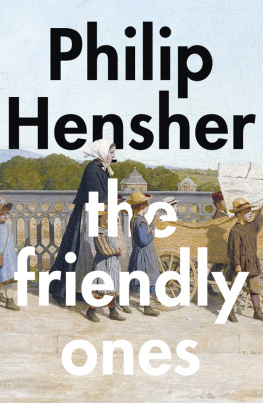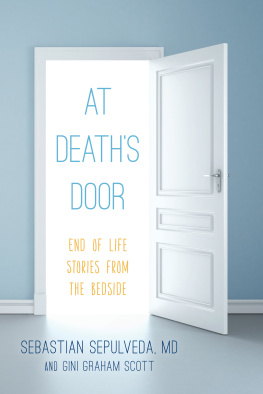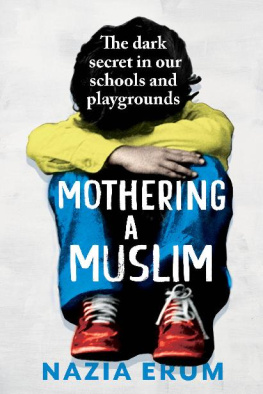4th Estate
An imprint of HarperCollinsPublishers
1 London Bridge Street
London SE1 9GF
www.4thEstate.co.uk
This eBook first published in Great Britain by 4th Estate in 2018
Copyright Philip Hensher 2018
Cover image by Albert Anker (18311910)
Kleinkinderschule auf der Kirchenfeldbrcke, 1900, oil on canvas
Gottfried Keller-Stiftung, Bundesamt fr Kultur, Bern
Depositum im Kunstmuseum Bern
Extract from Second taken from Happiness by Jack Underwood (Faber & Faber). Copyright Jack Underwood, 2015. Reproduced by permission of Faber & Faber Ltd.
The right of Philip Hensher to be identified as the author of this work has been asserted by him in accordance with the Copyright, Designs and Patents Act 1988
A catalogue record for this book is available from the British Library
All rights reserved under International and Pan-American Copyright Conventions. By payment of the required fees, you have been granted the non-exclusive, non-transferable right to access and read the text of this e-book on-screen. No part of this text may be reproduced, transmitted, down-loaded, decompiled, reverse engineered, or stored in or introduced into any information storage and retrieval system, in any form or by any means, whether electronic or mechanical, now known or hereinafter invented, without the express written permission of HarperCollins.
Source ISBN: 9780008175641
Ebook edition: March 2018 ISBN: 9780008175665
Version: 2018-01-30
For Zaved Mahmood, of course
If I lived in a cave and you were my only visitor,
what would I tell you that the walls had told me?
That people are unfinished and are made between
each other
JACK UNDERWOOD , Second
amid the millions of this great city it is difficult to discover who these people are or what their object can be
ARTHUR CONAN DOYLE , The Hound of the Baskervilles
Contents
THE LITTLE SPINSTERS
Towards the end of the afternoon, Aisha got up and stood at the garden window. The arrangements for the party had been in place since the morning the hired barbecue, red and shiny under the elm tree, the festoons over the bushes, the torches lined up along the shrubbery. Over the fence, the old man was up a ladder against a fruit tree. He had been sweeping fallen white blossom from his lawn, and now had found something to do where he could see his neighbours better. Inside the room, the Italian was continuing to talk. Her mother and father were still listening.
Really? Nazia said inattentively. She could not see this one as a son-in-law. He was bald; his brown sweater hung, unravelling, around his dirty wrists. His party clothes were underneath. Aisha had been an eager, encouraging member of his audience until early yesterday evening, and then, quite abruptly, had wilted into silence and bored disinterest, passing him on to her parents, like a pet she had passionately wished for before finding the task of caring for it too much.
In Sicily, we often have such parties, the Italian was saying. But it is too hot, in the summer, to have parties during the day where food is served. We wait until nine or ten oclock in the evening, and then we eat cold food, perhaps some pasta. We would not grill meat like this, in the open air.
Really? Sharif said, in his turn. A bird was singing in the elm tree, a loud, plangent, lovely note, as if asking a question of the garden. Underneath, the light fell through the leaves, dappling the lawn, the shiny red box of the barbecue, the white-shirted help, now talking quietly to each other, raising their eyes quizzically, serious as surgeons.
Nazia had felt she had done everything that she could have for Aishas Italian. They had taken him out to an Italian restaurant in Sheffield on Friday night, said to be very good, where he had poked suspiciously at his plate and explained about Sicilian food. They had gone out for the day into the countryside on Saturday, where Sharif had got lost and the stately home had failed to impress. She had cooked a real Bengali meal last night that Enrico couldnt eat, and had said so. This morning, Aisha was supposed to take him for a walk in the neighbourhood, through the woods, but her change of heart yesterday had done for that. Oh, Mummy, she had said, throwing her hands up, when Nazia had suggested it after breakfast. Dont be so dreadfully boring. I cant think of anything worse. Well be perfectly happy just reading the paper.
They had been in the square red-brick house almost four months. It was perfect, resembling a childs first drawing of a house, with a square front, a door with brass knocker, windows to either side, and a chimney on both right and left. The purple front door had been changed to imperial blue, the kitchen modernized, the fitted carpets removed and the parquet flooring re-polished, the avocado bathroom altered to white: everything had been done under Nazias direction and control, but there had been no official opening.
Aisha had been mentioning her friend Enrico for some months now, another student on her MPhil course at Cambridge. Nazia and Sharif had agreed that they would be welcoming and open, however confiding or confrontational Aisha became in mentioning her friend. Aisha had said she would bring Enrico to visit them one weekend. It would be a perfect opportunity to have a lot of people round. They had agreed this without consulting Aisha. Oh, Mummy, for Gods sake, Aisha had said, when she had heard. Enrico doesnt want to meet the aunties and hear about all their babies. I cant imagine how you could inflict that on him. But this was an ordinary sort of complaint, not a storming-out, a door-slamming, a refusal to join in, and everyone knew how much fun a party could be. What they would have done with Enrico if they hadnt been able to excuse themselves, to make sure the preparations were in order, Nazia could not imagine.
The Italian was leaning forward as if to make an important point, but he was still talking about the details of his country. My mother and father always go away in August, to the same place in Tuscany they have gone to for forty years. A spa town. Many Sicilians go to the same spa town, and go at the same time. There would be no point in holding a party in the summer, in August, at home in Sicily. Italians were expected to be good-looking. But Enrico sat with his pale fat hands, like wet skinned fish, his black, chaotic hair about the bald dome. With his squashed, irregular and expository features, he looked like someone who should have been apologized for. Nazia knew that people could have different effects in different places. Enrico, in the damp cafs and libraries of fog-bound Cambridge, explaining about things to Aisha, showing her how the world was and how it could be put right: that was fascinating. For a moment she saw him, his face glowering with righteousness in a cloud of tea-steam, tearing at an English cake and bringing it in crumbs and fragments to his mouth, and Aisha opposite, listening. The Enrico in her head wore a scarf and a brown duffel coat and woollen gloves. He was not a person for home or family, but one to make a compelling case in public places and temporary rented rooms with another persons ideas of wallpaper, a speechmaker with bold, urgent gestures. Aisha stood at the window, having renounced her Italian for the moment. There would be a slow, sour conversation on the train tomorrow.
Is that in Sicily, too? Sharif said politely.
In Sicily? Enrico said. There was a tone of mild astonishment in his voice, as if he had not been talking about Sicily, as if it were extraordinary and in slightly bad taste to have raised the subject at all.
The place you said where your parents go on holiday.








